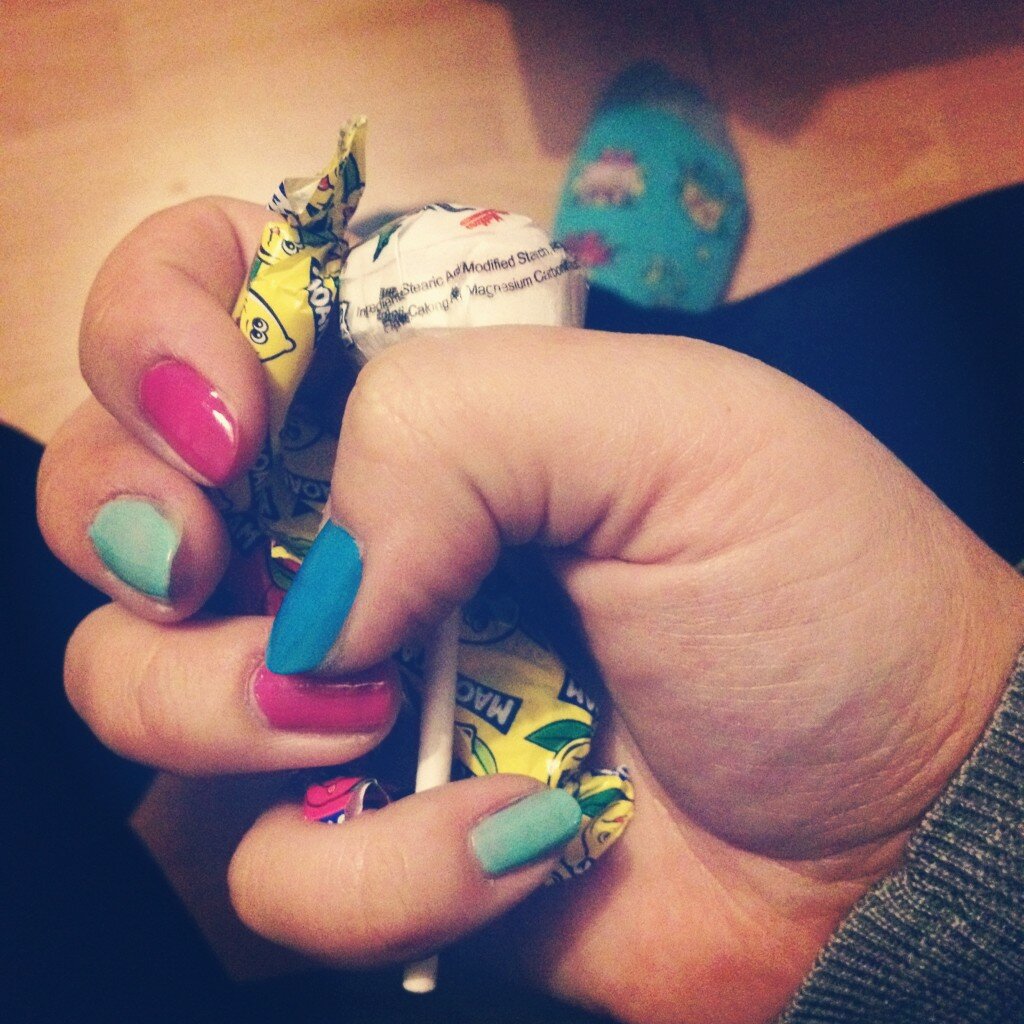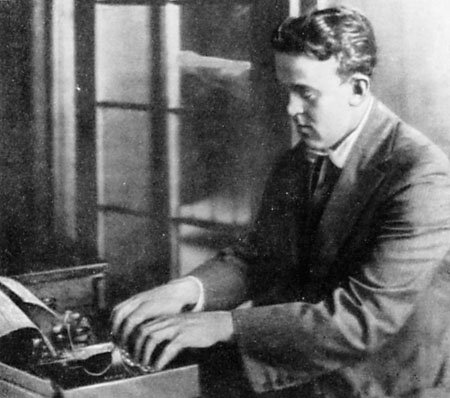 In light of several conversations on twitter and some of my own personal experiences, I have been considering drop. Sub-drop in particular, although top-drop too. And, as I feel sure exist, various other kinds of drop. For those of you unfamiliar with the term, drop is the often-experienced sense of loss/blues/emotion experienced after an intense (BDSM) ‘scene’. It can manifest quite severely as tearfulness, loneliness or a general overloading of emotion. (I’m writing mostly from my own experience, but have seen others describe it as thus as well.) Sub-drop is discussed more widely as the experience of being controlled by someone else and being then left without that control and/or support. This can be extremely devastating; especially if we factor in the physical aches and marks that may be involved in play where pain is a contributing factor. However, the drop itself, I believe, has more to do with the intensity. What mostly causes drop seems to be the sense of helplessness and loss when the intensity of a scene is over. To be so engaged with another human being is, undoubtedly, intense.
In light of several conversations on twitter and some of my own personal experiences, I have been considering drop. Sub-drop in particular, although top-drop too. And, as I feel sure exist, various other kinds of drop. For those of you unfamiliar with the term, drop is the often-experienced sense of loss/blues/emotion experienced after an intense (BDSM) ‘scene’. It can manifest quite severely as tearfulness, loneliness or a general overloading of emotion. (I’m writing mostly from my own experience, but have seen others describe it as thus as well.) Sub-drop is discussed more widely as the experience of being controlled by someone else and being then left without that control and/or support. This can be extremely devastating; especially if we factor in the physical aches and marks that may be involved in play where pain is a contributing factor. However, the drop itself, I believe, has more to do with the intensity. What mostly causes drop seems to be the sense of helplessness and loss when the intensity of a scene is over. To be so engaged with another human being is, undoubtedly, intense.
A couple of things in particular have occurred to me on this topic, things which I have not seen discussed in any great detail. When drop is written about it is mostly generically or personally, and predominantly by people who identify as kinky. Although I have my own personal experiences, the two things that have been on my mind are 1) that the severity of drop is relative to the type of person experiencing it, and 2) that people with no kinks to speak of also experience drop; in fact, it can be experienced in a non-sexual setting as well. The most severe drop I ever experience comes after I have been in a theatrical production; come rain or come shine everyone in the company can agree that the days after a final performance are hellish and leave us feeling utterly lost.
Speaking of the severity of drop in relation to the person experiencing it, what I mean is that a particularly emotionally strong person might not experience it with much severity, even if they have engaged in a very intense, (for lack of a better word) hardcore play, whereas someone of a sensitive disposition might experience drop in the wake of simply kissing someone and then being left bereft of their presence. In fact, I don’t think it would be much of a stretch to say that many people experience drop after experimenting as teenagers and/or loss of virginity, without identifying it. That cold, aloneness of the morning after is something I remember as very emotionally unsettling. Reading this piece by Jillian Boyd brought my thoughts to a head. In the piece she describes playing with someone in a way which may seem casual, but was very intense for her – and I believe would be very intense for many, – and having to stop due to an overwhelming sense of emotional disarray. This sparked another thought; it is possible to experience drop mid-play. The emotion involved in many focused exploits is enough to tip some of us over the edge.
Of course, I think experience plays a large part in the way we handle drop; as we grow more experienced and learn more about ourselves we also handle emotion better. I certainly don’t experience drop anywhere near as seriously as I did a couple of years ago.
Personally, I feel I have come across far too many people who engage in intense play and know almost nothing of drop. It is important to be able to identify it in order to ask that your needs be met. This was something I learnt long after I started experiencing drop; luckily, when I was finally able to name the feeling, I was simultaneously introduced to the concept of aftercare. Aftercare is the antidote; it is whatever we need in order to deal with the drop. For most it means comfort, care and cuddling. It is slightly different for everyone, but in general it seems most agree that a sense of being looked after is key. I believe it gets more complicated when both partners require aftercare, but I will leave that discussion for another time; I have personally never been with someone who needed aftercare, although I always make sure I check in with my partner to ensure they are doing okay.
However, with the advent of the internet, aftercare has become problematic. Now that we are able to connect with people who are not in our immediate vicinity, we are also able to play with them. But we are not able to get the physical aftercare we may require. Although there is a good case for the argument that you can’t build up the same intensity online as you can in person and therefore you don’t require the same level of aftercare, I believe there is still an imbalance. It would seem that online play can become more intense than online aftercare is equipped to deal with. Another problem – and I am loathe to bring this up because I have no desire to discuss the ethics of cheating on this blog post, but I think it’s important to add to the discussion – is that many people in relationships now have easier access to sex outside those relationships. What this means is that people may be able to go and play during the day, but more likely than not they will then have to go home to their partner afterwards, leaving the other person alone to deal with the drop.
I’m aware that there are people who would argue, then, that this is just another reason not to cheat, but I don’t like to pass judgement in such a general way; people cheat for all kinds of reasons and it is not my place to say they should not. Besides which, I have slept with married people; but that is my own business. The only part of that which I wish to discuss is this:
Harper Eliot’s Guide to Surviving Drop Alone. (Yes, the preceding 1000 words have all been leading up to this.) Since reading Jilly’s piece and generally contemplating how I take care of myself after playing with someone, I’ve been considering what tips I would give to someone experiencing drop on their own. And with all the pain and sadness I see on twitter every day, it seemed like something I should share. Of course, the following is very personal and can only be taken as advice and maybe a starting point; it is not law. It is also very simple; almost common sense really. The other thing which occurs to me when considering what follows is that if you’re female a lot of this may be very close to the kind of care you might require during menstruation. Whatever you do to take care of yourself at that time might be worth replicating during drop.
1. Communication with your partner. Even if he/she is not physically in the room, communication is important. Text, phonecalls, email, instant messaging, social networking… these are all tools you can use during drop. Talk. Demand the care you need. Conversely, if you don’t get it, you should not be playing with this person.
2. Communication with your friends. You don’t have to tell them what’s bothering you if you don’t want to, but speaking to a friendly voice is often very helpful.
3. Tears. You are allowed to cry. In fact, if you feel even the slightest need to, I openly encourage it. Crying can be an incredible release. It is therapeutic. It allows you to let out a huge amount of whatever negativity you are feeling. Make your pillow wet.
4. Cleanliness. Bathe, shower, BRUSH YOUR TEETH. Feeling the dirt of the day is just another burden to your body. You need to take care of yourself and feel comfortable and cosy in your skin. Not to mention the relaxing bliss that is a hot bath.
5. Clothes. Personally I feel a hoodie or a jumper can go a long way in helping you feel calm, relaxed and comforted. Keeping your body warm helps a lot. And the comfort of well-known everyday clothes helps as well. I would not, however, advise keeping items of clothing specifically for drop. The clothes need to aid you in coming back to everyday life so it is better if they are things you wear at other times too. Pajamas are good.
6. Food. Feel free to indulge in something not-so-healthy – like chocolate or chips – but don’t make this your entire diet. I cannot say enough good things about eating a substantial, healthy meal post-play. Not only does it help you recover, replenishing your body with what it needs, it also helps you psychologically if you know you are eating something that’s good for you.
7. Sleep. Make sure you get a good night’s sleep. Your body needs it. Your head needs it. You need it. You will feel better in the morning.
8. Busyness. Once you have a good night’s sleep under your belt I would advise that you get back to being busy with everyday life. Work is so good for this. As is housework, although try to get out of the house as well. Fresh air is your friend.
9. Music. Listen to something soothing, happy and warming. Something you love. Perhaps something that reminds you of good nights out with friends. (And if you’re kinky there are plenty of kinky podcasts to remind you that you’re not alone; although discussion is better than smut.)
10. Entertainment. Whether it be a book or television or magazines or the internet or an actual human being, find yourself something that truly makes you laugh. And laugh. As they say, it is the best medicine.
And there you have it. Ten steps to being a happy, healthy, (often kinky) person. You are entitled to your low feelings and you are owed your happiness.
Edit: there are lots of good comments and further advice below but I would particularly like to direct you to Abel’s comment; he talks about a side which I completely neglected.
















I can not thank you enough for both writing this and hearing me out on how I felt. I went through hell in the past few days, so this is definitely very helpful.
Thanks Harper.
xxxxxxx
You are very welcome hun. Hope you’re feeling better. x
I can’t even stand how good this post is. You’re incredible.
Haha, I have my good days. Hope you find this helpful!
I do agree that we can experience drop from a variety of activities. When I reflect on it I realize that I can feel that emptiness after being in the creative zone for hours as well as after a visit home to family. I don’t go through it as often now, at 36, as I did ten years ago – I think it’s part of maturing, of understanding your emotional stability and growing into your own self.
I also think it relates to having a safe, comfortable, haven – if your home isn’t one of those sorts of places I think you’re more likely to feel drop after coming from a place where you were safe, even is that “safe” was a BDSM scene where you were being flogged, spanked, etc – because you were still in control of that.
Hmmm. Now that last bit has my brain spinning…..
I had the luxury of spending some very lovely time with a dear friend last week who is more, and differently, experienced in the world of kink than I am. It was interesting to talk aftercare with her and find where our experiences diverge.
For her, she has found that after a time with the Dominant she needs time alone to ground and center herself, to come back to who she is and process the experience. Sometimes that is fifteen to thirty minutes, sometimes it’s significantly more.
Very lovely post, Harper, and thank you for sharing your thoughts :)
~Ais
Yes! I can completely understand wanting to be alone. That’s why I was careful to state that my advice is just that – advice. This is definitely not something to be laying down the law about. Everyone needs to work out what they need. I decided to write it because from speaking to people it seemed that the majority need this kind of care. And people in general could do with looking after themselves a little more I think.
( full disclosure: i have never experienced drop in this context. the following may just be me talking out of my arse. )
i have a very strong instinct that this advice is pretty bang on. at least, as you said, as a starting point. what i also think is bang on is your reference to menstrual care. the reason i think this is not only the emotional context, but the chemical one. PMT is caused by all of those hormones washing through your bloodstream causing all of those symptoms. and i think, given the coctail of chemicals that can be released during an intense scene (helping to produce all sorts of effects from euphoria to subspace), that it may be the chemicals themselves, or the effects of “coming down” from them, that go a very long way to causing drop. combined with the sudden withdrawal of emotional support/guidance/whatever, it can be a recipie for something very shitty indeed. so, as a woman, if you know how to look after yourself during your period, you should have a damn good idea of how to at least start to mitigate the effects of drop.
but as i said – i may just be talkin’ outta my ass.
Personally I think you’re pretty spot on…
This is an amazing, helpful post. While aftercare is not a one-size-fits-all thing, this covers so many amazing points of advice. My favorite is #4, although I would substitute shower for bath. Feeling the hot water running down over my head, my face, and my body just washes the negativity and stress right down the drain. And the tears. Music is also key for me anytime I need a mood-lift, for whatever reason. Nothing quite has the effect on me that music does.
I really like how you also point out how drop happens outside of sexual situations, too. I’ve known many people who get drop after a trip or a concert or the like. It’s common after any intense, emotional experience.
Very good advice for taking better care of ourselves. Thank you. <3
Usually I feel quite precious about my writing, but with this one I’m so glad people are already pointing out their own differences – e.g. the shower thing for you. It’s so important that people find their own coping methods.
So refreshing to see a post that recognises that top-drop exists, in the same way as sub-drop. Perhaps, if I might add a couple that work for me to the list:
- Remembering. Smiling at what you’ve done together. Realising how good it was. Replaying it. (Don’t think that you have to try to forget all about it. If it was wonderful, celebrate that!)
- Realism. Knowing that, although you wish it could have gone on – that it could still be going on – that the real world has to intervene sometimes. If all you had was kinky play, life would be a dull place.
- Looking forward. There’ll be other wonderful times to come. You may be missing your partner dreadfully, and regretting being on your own right now, but if this past scene was so wonderful, the next one will be special too.
Great post. Very thought-provoking.
Thank you! I really appreciate those additions. It seems obvious, but I really hadn’t considered how helpful it is to remember, happily what has happened.
And I wish I was more able to discuss top-drop as well, but I think the thing to keep in mind with any kind of drop is that it’s not about being physically hurt or used, it’s about coming out of an intense and possibly transgressive place. Stands to reason that everyone involved will feel the drop.
This is so well-written. And such good advice.
Thank you! I hope it’s helpful to those who need it.
How did I only just stumble across this post? I must catch up on everyone’s blogs..
This is beautiful, amazing advice. I find that when I have the drop my only cures are coffee, fruit (particularly berries!), sleep, attempting some yoga (watching a video and trying one pose usually!), a nice methol cigarette, sometimes a silly little cry over what’s usually nothing and curling up on my sofa watching some ridiculous trash. It’s nice to know I’m not alone in having these drops. :)
xoxo
You absolutely are not! And substitute coffee for tea, yoga for walking, menthol for liquorice, and we almost have the same after-care routine. So important to identify, deal and enjoy. Kink is too fun to ruin for ourselves with inadequate aftercare.
One of the types of drop that I’ve actually felt most often (since I’m no longer very kinky) is con-drop. It applied to my two weekends at MomentumCon so heavily. It was intense and different and so not at all like every day life. It was a glorious few days of being surrounded by all these lovely people who were so much like me and for two days we all got to say things outloud that we usually can’t say outloud to our coworkers and vanilla friends. Coming home the first year I felt it immediately as I left for home. Afterwards, both years, it was a mixture of euphoria (remembering it all) and sadness (missing it all). Real life felt so dull and bland after.
Oh God yes. I can imagine this one; well, I mean I went through it after Eroticon as well. Amazing, different-from-everyday-life events do leave you with some drop to consider, absolutely.
I don’t know how I ended up here, but so glad that I did. I finally have a name to go with what I have been experiencing. Thank you for providing hints that I will put into practice.
Glad to be of assistance.